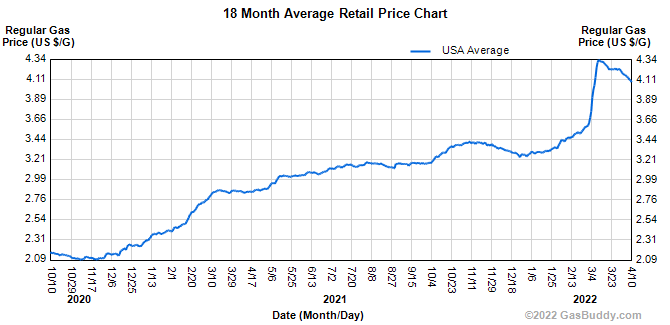| Russia has lit a global economic match with their invasion of Ukraine, and the energy sector was first to feel the heat. Gas prices rose strikingly throughout the first week of March after sanctions ensued, an outcome presaged by the oil futures market doing the same shortly before. Now, the search for a solution seems continually inconclusive, but the US government is still trying to put out this oil-prices fire with some last resort tricks. 
A drop in the bucket President Joe Biden has authorized the release of about 180 million barrels of oil from the US strategic petroleum reserves over the next 6 months, and multiple NATO nations across Europe are reportedly planning to do the same, adding 30-50 million more barrels to the market. The US uses about 20 million barrels of oil per day on average, and so releasing an amount like that from reserves would, hypothetically, last the domestic market approximately just 9 days. In other words, it’s a drop in the bucket. Meanwhile, global supply is expected to be reduced by about 3 million barrels per day due to the restrictions placed on Russia, the world’s third largest producer of oil. Next to that, neither OPEC nations nor domestic producers have agreed to ramp up production to offset price hikes. Why it matters - The US only imported about 245 million barrels of oil from Russia last year, or about 8% of all its oil imports in 2021. That sounds minor, so wouldn’t the 180 million barrels from reserves make up for that?
- In theory, yes, but oil is a global market. Russia exported 1.7 billion barrels of oil in 2021, a significant amount of which was exported to countries that now place sanctions on Russian energy.
- So, the US will have to find replacements in non-Russian oil whose production is not ramping up. As a result, it gets more expensive, and the impacts trickle all the way down to the pump.
The big picture With a restricted global supply and ongoing fears about the future of the oil markets, how this will eventually be resolved remains unknown. At this time, it has all culminated in bringing us higher gas prices, along with plenty of finger pointing looking for a single person to blame for a complex issue. If we zoom out and look past our myopic frustrations through a more macro lens, things feel a little bit better. Gas prices are likely to remain elevated for the foreseeable future, but there’s hope that they could regress to the mean in the coming months if oil prices remain around $100 or less. Americans may even be slightly better off than others on the global scale. Europe for example relies on 60% of Russia’s oil exports, and they were already dealing with an energy crisis as is, so this has only added fuel to the fire. ⛽ Here's a related lesson on this topic: |